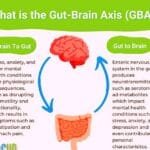Understanding and measuring the aging process is vital for taking proactive steps toward improving health and longevity. Dr. Sumaiya’s NutriCare emphasizes the importance of these measures in developing personalized health strategies. Let’s explore the key biomarkers and objective measures of aging, leveraging the latest scientific insights.
Unlock Your Longevity: Key Biomarkers and Tests to Measure Aging
What Are Biomarkers?
Biomarkers are measurable indicators of various biological processes happening in your body. Think of them as signals that tell us how your body is functioning and how it’s aging. These markers can be found in blood tests, physical assessments, and even through imaging techniques like brain scans.
Why Measuring Aging Matters
The saying “you can improve what you can measure” is very true when it comes to aging. By understanding and monitoring these biomarkers, we can get a clearer picture of our biological age, which often differs from our chronological age. This knowledge helps us to take proactive steps to improve our health, manage age-related conditions, and potentially slow down the aging process.
Key Areas of Aging: Explained Simply
1. Latent Aging Processes
- Memory loss and thinking difficulties: Changes in how well our brain functions.
- Physical abilities: Losing muscle strength, balance issues, and less stamina.
- Metabolic changes: Issues like high cholesterol, diabetes, and blood pressure.
- Cellular changes: Things happening at the cell level, like DNA damage and increased inflammation.
2. CNS (Central Nervous System) Aging Biomarkers
Your brain and nervous system play a crucial role in aging. Key indicators here include:
- Cognition: How well you remember things and process information.
- Brain health: Observed through imaging tests (like MRI or PET scans) that look at brain structure and activity.
3. Blood-Brain Barrier Function
The blood-brain barrier is a protective shield between your brain and the rest of your body. Aging can affect its function, leading to potential issues like cognitive decline. A compromised blood-brain barrier can allow harmful substances to enter the brain, contributing to neuroinflammation and neurodegenerative diseases.
4. Peripheral Aging Biomarkers
These are indicators found outside of the brain, including:
- Frailty index: A measure of your physical strength and resilience.
- Clinical lab tests: Blood tests that check for cholesterol levels, blood sugar, and more.
- Gut health and immune function: Changes in your gut microbiome and immune system that can impact your overall health. An imbalance in gut bacteria (dysbiosis) is increasingly linked to age-related diseases.
Practical Tests and Interventions
Understanding these biomarkers means we can perform specific tests to track how your body is aging. Here are some examples:
Performance Tests
- Memory and Reaction Time Tests: Simple online tests, such as those available on Human Benchmark, can measure your cognitive speed and memory.
- Physical Strength Tests: Tests like grip strength (using a dynamometer) and the 30-second chair stand can assess your muscle strength and endurance. The one-leg stand test assesses balance.
Subjective Tests
- Health Questionnaires: Tools like the SF36 questionnaire help us understand your overall health and well-being from your perspective.
How Can You Benefit?
- Stay proactive about your health: Identify issues early and address them promptly.
- Personalize your health strategy: Tailor your diet, exercise, and lifestyle choices to what your body needs.
- Improve your quality of life: Maintain independence, reduce the risk of chronic diseases, and feel better overall.
Recommended Tests for Aging
- Comprehensive Blood Panel: Includes tests for blood glucose, lipids, liver function, kidney function, and complete blood count (CBC).
- Hormone Panel: Measures levels of key hormones such as thyroid hormones (T3, T4, TSH), sex hormones (estrogen, testosterone), and adrenal hormones (cortisol, DHEA).
- Inflammatory Markers: Includes tests for C-reactive protein (CRP), interleukin-6 (IL-6), and other cytokines.
- Genetic and Epigenetic Tests: Includes telomere length measurement and DNA methylation analysis (e.g., biological age clocks).
- Physical and Cognitive Function Tests: Includes gait speed, grip strength, memory tests (e.g., MoCA, MMSE), and attention tests.
- Gut Microbiome Testing: Analyzing the composition of gut bacteria to assess gut health.
Lifestyle Interventions
- Diet: Calorie restriction (without malnutrition), a predominantly plant-based diet, and reduced processed food intake have been shown to improve biomarkers of aging. Consider the Mediterranean diet or the DASH diet.
- Exercise: Regular cardiovascular exercise (e.g., brisk walking, jogging) and resistance training (e.g., weightlifting) enhance physical function and reduce inflammation. Aim for at least 150 minutes of moderate-intensity aerobic activity or 75 minutes of vigorous-intensity activity per week, plus muscle-strengthening activities on two or more days per week.
- Sleep: Adequate and quality sleep (7-9 hours per night for most adults) is essential for cognitive health and overall well-being. Poor sleep is linked to increased inflammation and accelerated aging.
- Stress Management: Techniques like meditation, yoga, and deep breathing can help reduce stress and its negative impact on aging.
- Medications and Supplements: Certain drugs like rapamycin and metformin, and supplements like antioxidants (e.g., Vitamin C, Vitamin E) and NAD+ precursors (e.g., nicotinamide riboside), may have anti-aging effects, but these should *always* be used under medical supervision.
Table: Recommended Tests and Interventions for Aging
It’s crucial to understand the various biomarkers and objective measures that help us assess our biological age and overall health. The table below outlines a range of recommended tests and interventions, including lifestyle modifications, diagnostic tests, and pharmaceutical options. Each entry highlights the modality, availability, key diagnostics or biomarkers, and a brief explanation of its significance in the context of aging.
| Test/Intervention | Modality | Availability | Best Diagnostics/Biomarkers to Determine Need | Explanation |
|---|---|---|---|---|
| Diet (calorie restriction, plant-based) | Lifestyle Mod | Anyone can do it immediately | BMI, weight, waist/hip ratio, lipid panel, insulin sensitivity | Calorie restriction and plant-based diets improve metabolic health and reduce chronic disease risk. |
| Exercise (cardio or resistance) | Lifestyle Mod | Anyone can do it immediately | Fitness tests (widely available) | Regular exercise improves cardiovascular and muscular health, crucial for maintaining physical function. |
| Ornish Program (low-fat, whole foods, exercise, stress management, social support) | 4-Part Lifestyle Program | Anyone can do it immediately | BMI, weight, waist/hip ratio, lipids, cardiac events, etc. | Comprehensive lifestyle program targeting multiple aspects of health. |
| Sleep (adequate) | Lifestyle Mod | Anyone can do it immediately | Sleep quality assessments, polysomnography | Adequate sleep is crucial for cognitive health and overall well-being. |
| Rapamycin (oral) | Drug | By prescription or clinical trials | mTOR activity, immune function markers | Targets the mTOR pathway, potentially extending lifespan and improving healthspan. |
| Metformin (oral) | Drug | By prescription | Blood glucose levels, insulin sensitivity | Known for glucose-lowering effects, with potential anti-aging benefits. |
| Blood Panel (comprehensive) | Diagnostic Test | Standard medical test | Blood glucose, lipids, liver function, kidney function, CBC | Provides insights into various health parameters, detecting early signs of disease. |
| Hormone Panel | Diagnostic Test | Standard medical test | Thyroid hormones, sex hormones, adrenal hormones | Monitors hormone levels, managing age-related endocrine changes. |
| Inflammatory Markers | Diagnostic Test | Standard medical test | C-reactive protein (CRP), interleukin-6 (IL-6) | Assesses inflammation levels, a key factor in aging and disease. |
| Genetic and Epigenetic Tests | Diagnostic Test | Specialized labs and services | Telomere length, DNA methylation patterns | Provides insights into genetic predispositions and epigenetic changes. |
| Physical Function Tests | Diagnostic Test | Widely available in medical and fitness centers | Gait speed, grip strength, balance assessments | Evaluates functional aging and predicts the risk of disability. |
| Cognitive Function Tests | Diagnostic Test | Widely available in medical and psychological clinics | Memory tests, attention tests, executive function assessments | Enables early detection of cognitive decline and timely interventions. |
| CBC / Metabolic / Lipid Panel | Lab Test | Widely available | Blood cell counts, metabolic health markers, lipid profile | Comprehensive assessment of overall health status. |
| DNA Methylation Test | Lab Test | Specialized labs | Methylation patterns on specific DNA sites | Assesses biological age and the impact of lifestyle factors. |
| ProdromeScan | Lab Test | Specialized labs | Various biomarkers associated with metabolic and cognitive health | Tests for early markers of neurodegenerative diseases and metabolic dysfunction. |
| Fitness Tests (Gait Speed, Grip Strength, etc.) | Diagnostic Test | Widely available in medical and fitness centers | Gait speed, grip strength, endurance assessments | Predicts the risk of falls, disability, and overall health. |
| Cognitive Assessments (Memory, Attention, etc.) | Diagnostic Test | Widely available in medical and psychological clinics | Memory tests, attention tests, cognitive function evaluations | Essential for early detection and management of cognitive decline. |
Performance Tests
These tests assess various cognitive and physical capabilities. Human Benchmark tests are free online tools for measuring memory and reaction time. Grip strength and other physical tests like the 30 Second Chair Stand and One Leg Stand provide insights into muscle strength and balance, which are critical indicators of physical health in aging.
| Test/Intervention | Name of Test | Retail Cost $ | Notes About Test |
|---|---|---|---|
| Cognitive | Number Memory, Verbal Memory | Free | Human Benchmark |
| Cognitive/Physical | Reaction Time | Free | Human Benchmark |
| Physical | Grip Strength | <$5 | Jamar Preston TEC Hydraulic Hand Dynamometer or better |
| Physical | 30 Second Chair Stand | Free | CDC 30 Second Chair Stand Test |
| Physical | One Leg Stand | Free | Timed, how long subject can stand on one leg. |
| Physical | Hang Time with Arms Curled | <$20 | Using a pull-up bar, arms fully curled. |
| Physical | 6 Minute Walk Test | Free | Measure distance walked in 6 minutes. |
| Cognitive | Animal Fluency Test | Free | How many animals can you name in 60 seconds? |
Subjective Tests
The SF36 Questionnaire is a comprehensive survey that evaluates overall health from the patient’s perspective, covering physical functioning, bodily pain, general health perceptions, vitality, social functioning, and emotional and mental health.
| Test/Intervention | Name of Test | Retail Cost $ | Notes About Test |
|---|---|---|---|
| Health Assessment | SF36 Questionnaire | Free | Medical Outcomes Study Questionnaire Short Form 36 |

Conclusion
Understanding and monitoring biomarkers and objective measures of aging is crucial for proactive health management. By incorporating these tests into regular health check-ups, individuals can gain valuable insights into their biological age and take informed steps to enhance their health and longevity. At Dr. Sumaiya’s NutriCare, we are committed to providing personalized nutrition and lifestyle strategies to help you age gracefully and healthily. As your dietitian, I’m here to guide you through this journey, helping you make informed decisions to live a longer, healthier, and more fulfilling life. Remember, you can improve what you can measure, and it all starts with understanding your body better.
Let’s take these steps together to embrace healthy aging! If you have any questions or want to learn more about specific tests and interventions,
🌟 Introducing the “Timeless You” Anti-Aging Package! 🌟
Experience youthful vitality and radiant health with Dr. Sumaiya Nutricare’s comprehensive anti-aging therapy.
- ✨ Package Highlights:
- Personalized consultation and customized nutrition plan.
- Advanced diagnostic tests.
- Monthly wellness kits with essential supplements.
- Access to exclusive wellness resources.
🧬 Transform your health and slow down aging with expert guidance and support!
🌐 Learn more and sign up today: drsumaiya.com/register
Rediscover your youthful self with the “Timeless You” package! 🌿
References
- Franceschi C, Garagnani P, Morsiani C, Conte M, Santoro A, Grignolio A, Monti D, Capri M, Salvioli S. The continuum of aging and age-related diseases: common mechanisms but different rates. Front Med (Lausanne). 2018 Mar 12;5:61. doi: 10.3389/fmed.2018.00061. PMID: 29594089; PMCID: PMC5854958.
- Jylhävä J, Pedersen NL, Hägg S. Biological age predictors. EBioMedicine. 2017 Jul;21:29-36. doi: 10.1016/j.ebiom.2017.03.046. Epub 2017 Mar 30. PMID: 28392079; PMCID: PMC5514388.
- Belsky DW, Caspi A, Houts R, Cohen HJ, Corcoran DL, Danese A, Harrington H, Israel S, Levine ME, Schaefer JD, Sugden K, Williams B, Yashin AI, Poulton R, Moffitt TE. Quantification of biological aging in young adults. Proc Natl Acad Sci U S A. 2015 Jul 28;112(30):E4104-10. doi: 10.1073/pnas.1506264112. Epub 2015 Jul 6. PMID: 26150497; PMCID: PMC4522793.
- Centers for Disease Control and Prevention. (n.d.). *30 Second Chair Stand Test*. Retrieved from [https://www.cdc.gov/steadi/pdf/STEADI-Assessment-30Sec-508.pdf](https://www.cdc.gov/steadi/pdf/STEADI-Assessment-30Sec-508.pdf)




